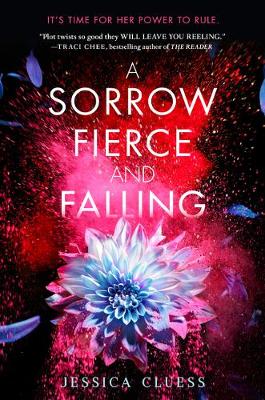Reviewed by ladygrey on
And I get that the "realism" of the plot, the war and danger and whatnot, does not lend itself to levity. But I don't read books about magic because I'm terribly concerned with "realism." Fine, you need to tell the dark story and take your war to it's inevitable end. But there can be breaths of hope, and wonder and beauty along the way.
As far as series endings go, this was mostly very good - tying up loose ends and explaining almost everything. I'm left with only two questions. What happened to baby Georgiana? She was this key part of Magnus' and then she just vanished. Did the nurse adopt her? Did she end up a Brimthorn? Was she just inconvenient because baby's are inconvenient things on a battlefield and she'd served her purpose.
Also, what's the up with Blackwood and Howel's whole destiny thing? That was never explained in any way. Was it just a plot device to draw her to him, complicate the story a bit, pull her away from Magnus and from Rook, meddle with power dynamics? Because every other bit of magic history and the cause and effect of everything was explained quite thoroughly.
Oh, and the blasted prophecy. I know there was a whole conversation with Lambe about how prophecy might not really be anything and were there cliffs there and whatnot. But it all seemed quite flimsy. Like, was there one chosen one? Or two? Because the beginning lines are all about fire and shadow and fog but Maria wasn't anywhere to be glimpsed in the first book.
And speaking of which, I don't understand why a larger portion of the story wasn't spent on freeing Maria from Mary. It's in the prophecy and clearly Mary is a danger and yet... they spend like a third of the book, not ignoring the danger completely but pretending that as long as Maria can keep her suppressed than alls well. I get that she's needed for the end but Howel is told several times she has to separate the girl and the woman and she doesn't even try.
It wasn't just the plot that was especially sorrowful - I liked Blackwood quite a bit more in the first book. Somewhat more in the second book. His descent in this book into madness and power isn't any fun. I prefer to remember him as the kind and loyal boy from Shadow.
Unfortunately, his whole trajectory is rather convenient for the plot, when I would have preferred something... less convenient and more... I don't know. Kind. Or consistent. Blackwood kind of comes out of nowhere in Poison when they're dancing together. It's like he's moving into this role as her brother and friend and then wham! marry me! I love you so much. And then she's all - yeah, maybe it's a spell but I do love you! and everything... Blackwood, I thought, perhaps deserved better. Especially that blasted destiny that's never properly explained, not the how and the why of it. When she's thoroughly explained the how and why of everything else.
"Does he make you feel this way?" Blackwood's lips moved against my cheek. "Do you know this with him?"
...Even now, part of me still yearned to give into him. But I knew my answer before I spoke.
"We were marked for one another in darkness." Gently, I put the ring into his hand. "I want a different life."
Blackwood isn't the only weak romantic thread. Rook was never really well established as a love interest. It's the common problem of childhood love that is all verbose and no substance - no time spent in the story with the characters together now, talking now, getting into and out of trouble together now. The reader doesn't share the main character's emotional history so all the "Rook is so special to me" and "remember that time on the moor" falls flat. Across the entire trilogy they barely spend any time together and the few conversations they have are mostly about him being pulled into darkness. There's no real life in their relationships.
I wondered if we hadn't clung to each other because that was all we knew. All that was good in this war-torn world. Our love had been the love of childhood, of sweetness and security and home.
And then he too has a convenient demise that gives Howel power. Like all of these boys are lined up to fall down when the plot requires her to wield what they had.
Magnus is the only character that is actually well established as a love interest. Throughout the entire trilogy they're friends and they're flirty, he protects her and supports her decisions and there's attraction and comforting each other in all the dire times. There's conversations where they share their secrets and laugh and take care of each other. It's got all the aspects of a good relationship and is much deeper, and most importantly well developed, than all the other relationships.
Granted, this book isn't all about boys and falling in love. I did mention how painfully lacking it is in bright spots. But it's not terrible. And it's not depressing. There's forgiveness and there's peace, some in the end, in the wake of sorrow.
Reading updates
- Started reading
- 3 November, 2018: Finished reading
- 3 November, 2018: Reviewed
